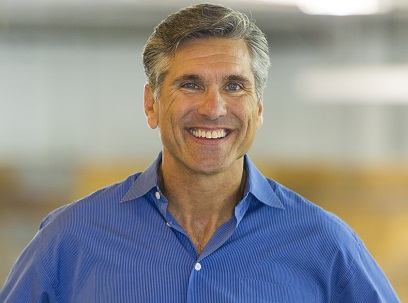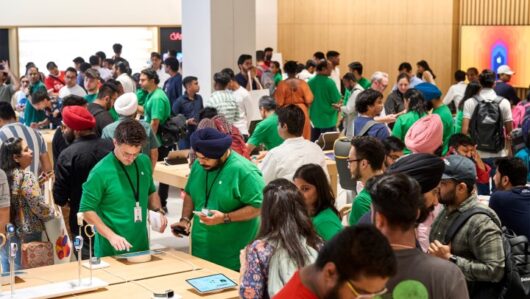
Los Angeles-based fashion brand Toms has inspired thousands of companies around the world with its ‘one for one’ business model, where for every item a customer purchases, the company donates an item to someone in need.
Toms pioneered the concept in 2006 with shoes and later prescription glasses, and today, there are countless ‘one-for-one’ companies selling (and donating) everything from mattresses to soccer balls. Now, Toms hopes to start a new trend.
In Melbourne on Wednesday evening, Toms CEO Jim Alling announced the company has become a certified B Corp. This makes Toms one of 2600 organisations worldwide that is verified as having a positive impact on its workers, community, customers and the environment.
Triple bottom line
B Lab, the nonprofit organisation that administers B Corp certification, started in the US in 2006 to solve some of the world’s biggest problems, such as poverty and climate change, through business. It is based on the concept of a triple bottom line, where businesses are evaluated not only by their profit, but also their impact on people and the planet.
Since launching in Australia in 2014, B Lab has certified 236 local businesses. It’s the highest number of B Corps per capita anywhere in the world.
For a company like Toms, which is already synonymous with doing good, B Corp accreditation may appear to be a ‘belt and suspenders’ decision. But as Alling pointed out in a conversation with IR, having a third-party audit your books and verify that you’re as ethical as you say you are is a powerful draw card for today’s customers.
As more businesses catch on to the fact that people care about the environmental and social impact of the brands they buy from, it’s inevitable that some will exaggerate or outright falsify their efforts in this space. Toms’ B Corp certification is meant to convince the cynics.
“We know we’re the genuine deal, but there are people out there who think it’s a lot of smoke and mirrors,” Alling told IR.
“We believe that gaining this certification is really going to make a difference for those consumers.”

Not just smoke and mirrors
For Alling, who was COO at T-Mobile for five years and a senior executive at Starbucks for 11 years before joining Toms in 2015, the commercial reasons for doing good are inextricable from the moral argument.
“I don’t want this to sound entirely altruistic, because there’s a commercial benefit to doing this,” he said.
“Some people will stop buying your product if they feel you’re not good stewards of your community.”
Employees are often the ones pushing companies to adopt more ethical and sustainable policies, according to Alling.
“I was at Starbucks pretty early on, and it was our people on the front line who were asking why we didn’t have better recycling, why we were wasting water,” he said.
Besides appealing to consumers, putting impact at the heart of a business also helps it to attract top talent.
“A big attraction for our own people is being part of a purpose-driven company – that’s how we’ve been able to hire so many great people,” Alling said, adding it’s the reason he joined Toms in 2015.
Starting a trend
It took Toms roughly six months from submitting the initial self-assessment to be audited and receive accreditation. The company didn’t have to make any changes to exceed the minimum threshold for B Corp certification, according to Alling, thanks to the ‘one for one’ model it was founded on. But there are still areas where Toms wants to improve, such as sustainability.
“Some of the environmental things weren’t our primary focus before, but we recognise that we can do better,” he said.
For instance, Alling is looking to change the way Toms ships samples and other products around the world to reduce its carbon footprint.
And while Alling said Toms is just at the beginning of its B Corp journey, he hopes it will inspire other businesses like the ‘one for one’ model did.
“Running an open company is a healthy thing to do, and hopefully others will strive to do it as well,” he said.
“Does everybody feel they need to get to B Corp certification, probably not. Do they realise they better start doing the sorts of things that younger consumers weigh when they’re making a purchase decision? I think it’s in their own commercial best interest.”





